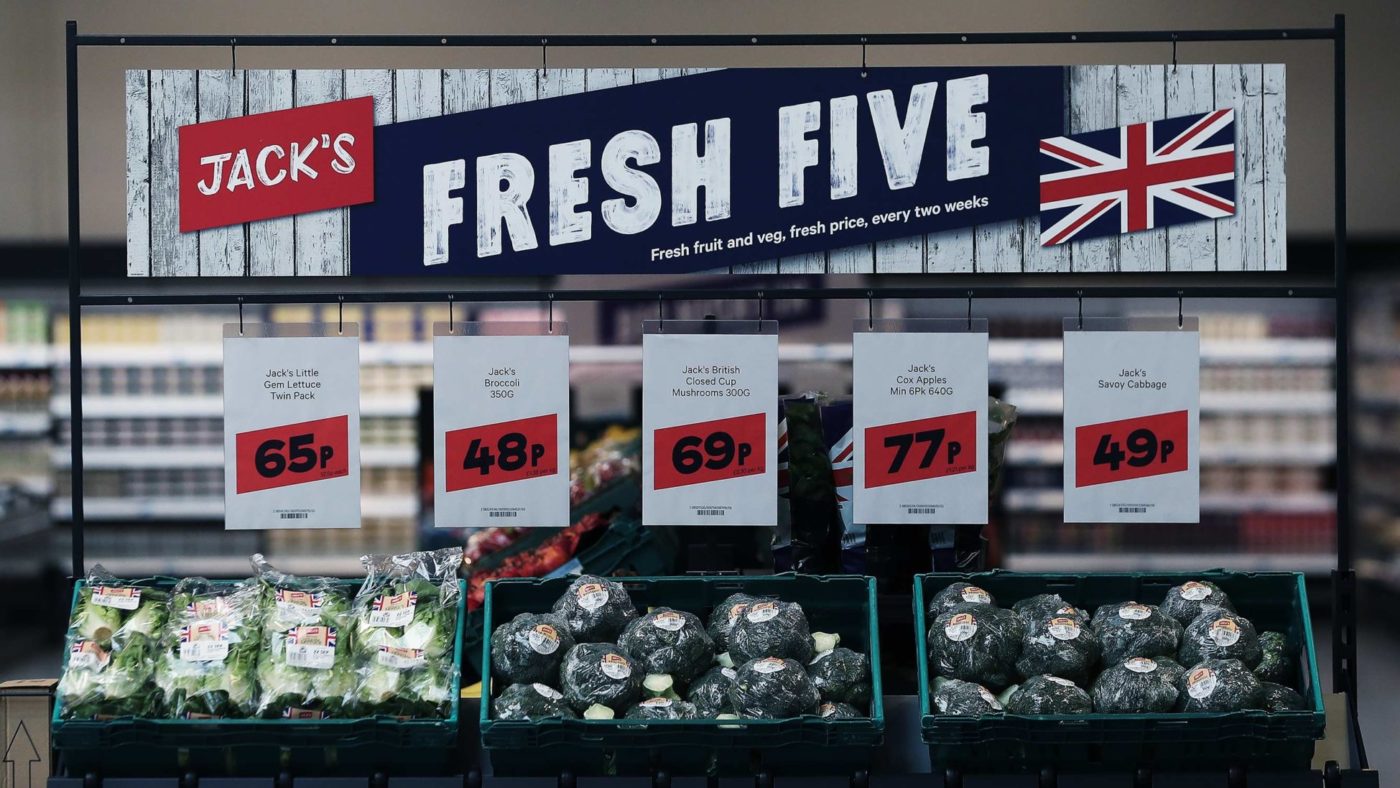Tesco is returning to the happy days of founder Jack Cohen’s “pile it high and sell it cheap” philosophy with the opening of its new discount arm, Jack’s.
Or to be more precise, Tesco has been forced to improve their offering to consumers by the emergence of ever more vigorous competition. Britain’s supermarkets offer a useful parable about why free markets and capitalism benefit us consumers so much and why those of us lucky enough to live in free market, capitalist societies are the richest people the world has ever known.
This is not to deny the standard complaint about the capitalists – that businessmen are rogues who would rip us off the moment they get the opportunity. The question is not whether that evil lurks, it’s how to control it? The answer is emphatically through open markets.
A very rough and potted history would be that Britain used to be covered by butchers and grocers and other high street businesses, most of which were put out of business by the emergence of Tesco’s and other supermarkets. Economies of scale, combined with the more efficient use of capital and labour produced the retail services most of us now rely on for our most basic need – sustenance. Many bemoan the demise of smaller businesses, but it is undeniably the case that big businesses have reaped huge benefits for ordinary households across the country.
The same is true elsewhere, of course. President Obama’s former economic adviser Jason Furman has estimated that the existence of supermarket giant Walmart produces $263 billion in savings each year for American families. That’s not just from buying their goods at low prices, but from WalMart’s model forcing everyone else to also lower their costs and profit margins to remain competitive.
When they first emerged, British supermarkets grew fat and happy on some of the best retail margins in the world. The picture now is quite different – the past decade or so has produced repeated warnings about price competition in the sector. The lurid tales of Tesco’s own accounting mire was more about trying to keep the gravy train going than anything else.
The cause of the ever smaller profit margins for the likes of Tesco and Sainsbury is not just competing with each for custom, but pressure from below from the German “deep discounters”, Lidl and Aldi. It is their hyper-efficient model, based on lots of own-brand goods at rock bottom prices, that Tesco is trying to replicate with Jack’s.
Among the essentials of the new technology employed by Lidl and Aldi – yes, a retail method is a technology – is to use less labour by not unpacking the goods so much and less capital by having fewer lines of goods and thus less stock to manage. There are a few other neat tricks, such as making the barcodes on their products bigger and easier to scan, saving customers and check-out staff time at the tills.
Tesco’s new venture might succeed or it might not, but it is a good story to sketch the outlines of a competitive market economy. We all agree that the capitalists would like to be plutocrats and they’ll get there by making profits off us. So, off they go devising new ways to take our money. The great limitation to striking it rich is that many other people are trying to do exactly the same thing.
Only those offering something we perceive as being very much better value than the alternatives will make it big. This is why the system works to make us consumers so much richer, we’re the people who decide which technology succeeds, which products we value the most.
The reason this system works is also why nationalisation, planning and uniformity don’t. It’s entirely possible to claim that doing away with all that messy competition is more efficient – that was the claim of scientific socialism after all. It’s just that we road-tested the contention in that grand experiment time and again during the 20th century and it came up short every time, usually spectacularly so. We need only look at the disastrous attempts at price-fixing from the Venezuelan government for a textbook example of the perils of interfering with markets.
The reason monopolies and state enterprises fail is not that a static system cannot be made more efficient, but because a static system doesn’t become more efficient in the manner a dynamic one does over time.
It is also worth noting what the market system offers over and above making us all richer. Those who still desire those high street shops can still have them – as long as they’re prepared to pay for them, which is really the correct definition of whether they really do want them. That’s why we get full service fish counters at the more expensive chains, and cheap and cheerful for those who prefer to spend their hard earned lucre in that manner. The supermarkets themselves are all too aware of this, with their own products ranging from basic to deluxe in order to segment customers by how much they are willing to pay for their grub.
This kind of fierce competition both provides us with a myriad choice and also tempers the slice those nasty capitalists end up with. Simply put, there’s no other system that does this, which is why all economies that enjoy any degree of prosperity have embraced the free market system.


